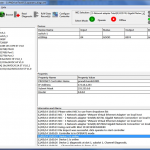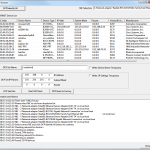PROFINET Commander provides value to a variety of users interested in interacting with PROFINET devices. For automation product developers, it provides the ability to quickly test a new device or system under development. Meanwhile vendor salespeople can demonstrate a product without extra hardware. End-user engineers can configure a device to check before employing in production. End-user maintenance persons can setup a device name or get diagnostics via PROFINET.
The main features are:
- I/O controller and I/O checking
- Diagnostics
- Reading and writing PROFINET data records
- DCP browser
 I/O Controller
I/O Controller
The I/O controller in PROFINET Commander can be used to communicate to an I/O device or network consisting of multiple devices. This is a vendor independent function which will work with any PROFINET RT device. The user can start and stop the device(s), set I/O points, and get diagnostic alarms.
Diagnostics
The Diagnostics functions can be used to troubleshoot a device in the event of a real time diagnostic alarm. There are both alarm functions and multiple ways to read the diagnostics out of the device directly in the event of a diagnostic condition. Diagnostics can also be read acyclically by using data records.
Reading and Writing
PROFINET read and write functions can be used for parameterization or other device specific information. This allows you to read standard PROFINET records like AR (Application Relation) information, I&M (Identification & Maintenance) information for maintenance, port information, diagnostics and more. There is even the ability to write standard or vendor specific parameters to a device directly.
 DCP Browser
DCP Browser
The latest version of the software provides a DCP (Discovery and Configuration Protocol) browser that lets you scan the network for devices, setup device names and IP addresses, and get manufacturer information or a network inventory.
